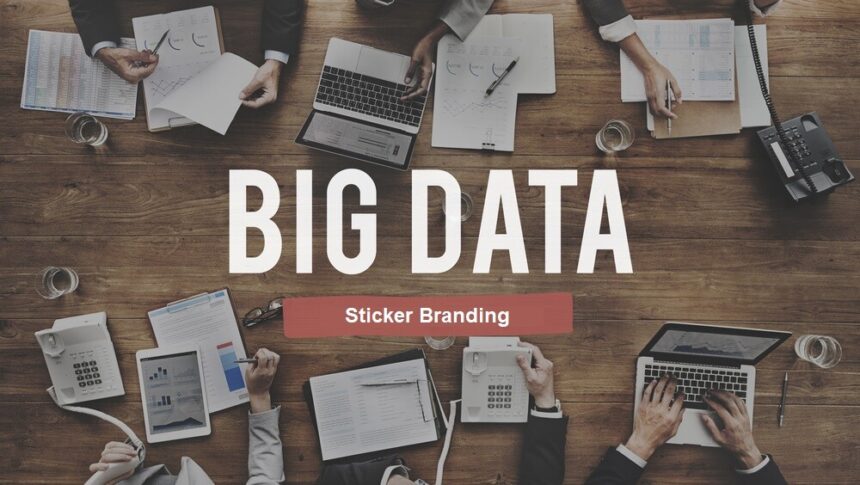Big data is playing a very important role in the future of branding. Last year, Samantha Bhargav wrote a great article on ways big data can help with branding strategies. There are a number of benefits, as Bhargav points out. One of the biggest is customer-centric marketing.
Ways that Big Data Promotes Stronger Branding Practices
Whether you are a brand that has just started off or a brand that has become a dominant force over the years, the same core principles are going to determine whether you are successful or not. Fortunately, major advances in big data can play a big role in the process.
How many ways can big data be used to enhance your brand? The opportunities are virtually endless. Mentionlytics wrote a great article on five brands that have benefited considerably from big data. They include:
- Coca-Cola using analytics in its social listening campaigns to build strategies around their target customers.
- Netflix using big data to more succinctly target its customers in advertisements.
- Amazon Fresh and Whole Foods forming a partnership and using big data to create the technology that would help them stand out.
The sky is the limit for creative brands that want to use big data to grow. This is important, because customers are raising the bar with their expectations in the age of big data. A brand must resonate with its target audience in order to sustain a meaningful impact, which is a lot easier said than done. In order to do this, there are a large number of things that you must prioritize if you want to even have a chance of audiences remembering your brand, as opposed to others.
Fortunately, whether you are using a branding agency or following the below advice, your brand can become successful. You can find a number of big data strategies that can help. Some of them are listed below.
Name
Your company name can make or break your brand. Although it is rather difficult to create a great brand name, it will be well worth the effort to put in the work. The first thing you should do is make sure that the brand is distinguished from competitors. You must stand out from the crowd to differentiate your own brand in a field in which everyone has the same aim.
It may seem like all the best names have already been taken, but that was the case for Steve Jobs when he created Apple – the best names haven’t been created yet! Also, if your brand name connects with your audience and provokes a positive emotional response then you are off to a winner. Metaphors could be used for this as they use a tabooer topic and make it relatable to the masses, causing immediate connections. Once you believe you have a good name, you must test the name with your target audience. It is quite likely that they will infer something else from the name to what you did – or perhaps not even like it at all! A name is subjective and opinionated, but if the general consensus is that the name is great, then you’re good to go.
How can big data help you come up with a great brand name? There are several benefits:
- You can use data tools to create random names and pick ones that work the best.
- You can determine how customers respond to different brand names when you present them.
- You can gauge the success of other brands on the market with certain names by looking at various analytics tools.
Big data can be very useful for choosing the perfect brand name.
Slogan
A brand’s slogan is a short and memorable phase that is used in advertising. A great slogan should usually be short, snappy and easy to remember, cementing itself in audiences’ minds after one hearing. It is similar to a chorus song. The slogan requires either a rhythm or a sound that easily rolls odd the tongue.
Also, the slogan must be succinct. As well as being short, it must convey the message that you want to get across to your target audience. If succinct, you’re halfway to having a slogan that provides incentive and this will allow potential customers to buy into the brand. The slogan will have portrayed the brand in a positive light, almost luring consumers into seeing the positives that the brand brings. Here are a few examples of popular taglines:
- Nike – “Just Do It”
- Apple – “Think Different”
- BMW – “The Ultimate Driving Machine”
- McDonald’s – “I’m Lovin’ It”
- Tesco – “Every Little Helps”
Lots of big data tools can help come up with random slogans. You can go through them and find ones that work.
Target Audience Knowledge
You must keep your fans and customers in mind when trying to build a successful brand. Identifying the target audience should always be a brand’s priority. A great brand will always understand their customers, what they require, how they think, their behaviors and how they spend their time/money. The more information you have on your audience, the more you can optimize your product or service. This will allow you to market the brand well as you can use a marketing strategy that is solely aimed at your target audience. In the long run, this will save you an abundance of money, time and energy as you will be wasting resources trying to lure in a crowd that does not resonate with your principles. Knowing your target audience thoroughly can allow you to excel in your niche.
Big data is great for doing customer research and targeting your audience through digital ads.
Big Data is Essential to Modern Branding
The art of branding has changed considerably in recent years. Big data is playing a more important role than ever.

